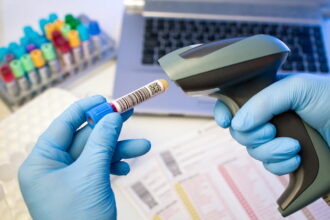Drug rehab centers are increasingly experimenting with the latest technology in order to speed up their patients’ recovery. Specifically, the usage of audio-visual technology, or virtual reality, is being used as an aid in drug rehab programs. Considering that the majority of patients end up having a relapse upon release, experimenting with completely new ideas is not out of the question.
Detecting Addiction
The Shanghai Mental Health Center in China
has developed a VR computer program that can assess patients’ addictions using VR headsets. The patients are put into scenarios involving drugs, in which then their eye movements would be tracked to see how they would respond to the visual stimuli. This takes out the guesswork of in-person interviews, which has variable results in the first place. In just the United States alone, it is estimated that 30 million people are addicted to drugs. Since most people do not even bother to seek help, this number may even be a rather low estimate. With new, technologically enhanced screening methods, we may have a better idea at detecting drug addicts and their severity levels.
Treating Addiction
There are multiple, experimental methods that VR technology may be used in order to treat rehab patients. With him same Shanghai-based group, they find that desensitization of drug usage imagery is an effective method. Users are put into visualized social situations with drug usage, which allows for interaction with the patient. With many users, the social aspect is what keeps them on drugs, and this virtual social fix will alleviate the main reason to use drugs with many patients. These VR scenarios also help with educating users and exposing to the negative aspects of drug usage. These scenarios may show imagery of the consequences of drug addiction so that users can experience them first hand. The imagery of declining health and ruined relationships to reduce the desire of using drugs.
Easy Outpatient Access
The majority of patients in drug rehab centers are teenagers and young adults. This generation specifically is completely immersed and reliant on the usage of computers and mobile devices, which is why doctors have found that smartphone-based programs greatly help with prevention. A great example is the 12 Steps Companion that is available for Android and iOS devices. This application and other similar apps allow users to stay on track with their addiction treatment so that they don’t have a relapse. This assures that users will have a helping hand, even if they do not have access to a therapist. With the anonymity of the internet, users may also get into discussions and group therapy from the comfort of their own home. There is no shame in discussing their personal problems with chat groups or forums that have no trace of their real identity. Having a support network, even if it is online strangers, is a key component to prevent a relapse.
AI to Create New Treatment Programs?
Machine learning is revolutionizing every aspect of the healthcare industry
, and drug rehab programs won’t be left out. Leaving out human error margins that are inevitably found in doctors, artificial intelligence can thoroughly review patients’ records and come to more thorough conclusions. This allows for treatment programs to become accurately tailored to the patients’ needs. Artificial intelligence can also be a way to automatically connect with patients. Although still in its infancy, chatbots are increasingly able to talk with patients and assess their responses. When such technology becomes more advanced, AI programs may essentially become an alternative to human therapists. These new implementations of technology in the drug rehab industry advances are just the tip of the iceberg in the technological revolution that has yet to come. As computer hardware, artificial intelligence programs, and VR gadgets become more advanced, medical treatments will surely improve drastically. AI may also be utilized to give guidance and medication reminders to patients through their smartphones to keep them on track.









